
Forest Peoples Programme (FPP) advocates an alternative vision of how forests should be managed and controlled, based on respect for the rights of the people who know them best. FPP works with forest peoples in South America, Africa, and Asia, to help them secure their rights, build up their own organisations and negotiate with governments and companies as to how economic development and conservation are the best achieved on their lands.

WaterAid is an international non-governmental organization, focused on water, sanitation and hygiene. It was set up in 1981 as a response to the UN International Drinking Water decade (1981–1990). As of 2018, it was operating in 34 countries.
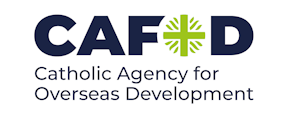
The Catholic Agency for Overseas Development, commonly known as CAFOD, is an international development and relief charity. It is the official aid agency of the Catholic Church in England and Wales.
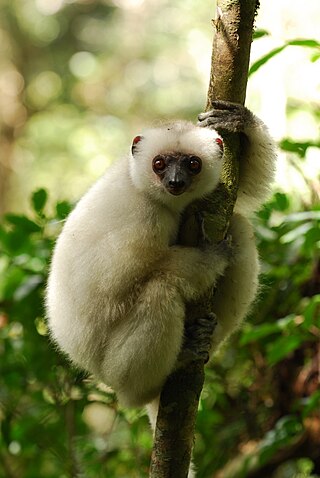
Makira Natural Park is a nature reserve in Madagascar's Northeastern region. In 2001, the Madagascar Ministry of Environment and Forests, in collaboration with the Wildlife Conservation Society (WCS), launched a program to create the 372,470 the Makira Forest Protected Area, with first temporary legal protections provided in 2005 as Makira Protected Area. Formally established as Makira Natural Park in 2012, the site is one of the largest of Madagascar’s protected areas and encompasses 372,470 hectares of strictly protected forest buffered by more than 350,000 hectares of community-managed forests. The Makira Natural Park is managed by WCS on behalf of the Government of Madagascar under a delegated management contract.
Shell Foundation is a philanthropic foundation that is working towards alleviating poverty for millions of people in Africa and Asia. It supports clean energy solutions that raise incomes while cutting emissions. As an independent and registered charity in England and Wales, the Shell Foundation is an initiative of the oil major Shell plc, envisioned in 1997, as a worldwide, social investment initiative to concentrate on working with external partners to promote sustainable development.
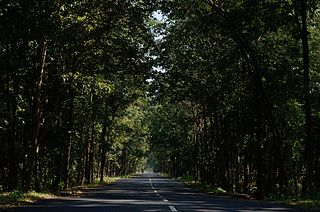
Social forestry is the management and protection of forests and afforestation of barren and deforested lands with the purpose of helping environmental, social and rural development. The term social forestry was first used in 1976 by The National Commission on Agriculture, when the government of India aimed to reduce pressure on forests by planting trees on all unused and fallow lands. It was intended as a democratic approach to forest conservation and usage, maximizing land utilization for multiple purposes.

Adansonia grandidieri is the biggest and most famous of Madagascar's six species of baobabs. It is sometimes known as Grandidier's baobab or the giant baobab. In French it is called Baobab malgache. The local name is renala or reniala. This tree is endemic to the island of Madagascar, where it is an endangered species threatened by the encroachment of agricultural land. This is the tree found at the Avenue of the Baobabs.
Historic England is an executive non-departmental public body of the British Government sponsored by the Department for Culture, Media and Sport. It is tasked with protecting the historic environment of England by preserving and listing historic buildings, scheduling ancient monuments, registering historic parks and gardens, advising central and local government, and promoting the public's enjoyment of, and advancing their knowledge of, ancient monuments and historic buildings.

Wildlife Alliance is an international non-profit forest and wildlife conservation organization with current programs in Cambodia. It is headquartered in New York City, with offices in Phnom Penh. The logo of the organization is the Asian elephant, an emblematic species and the namesake for the Southwest Elephant Corridor that Wildlife Alliance saved when it was under intense threat of poaching and habitat destruction in 2001. It is today one of the last remaining unfragmented elephant corridors in Asia. Due to Government rangers' and Wildlife Alliance's intensive anti-poaching efforts, there have been zero elephant killings since 2006. Dr. Suwanna Gauntlett is the Founder and Chief Executive Officer of Wildlife Alliance, and one of the original founders of WildAid. The organization is governed by a board of directors and an international advisory board that provides guidance on strategy, fundraising, and outreach.

Tree Aid is an international development non-governmental organisation which focuses on working with people in the Sahel region in Africa to tackle poverty and the effects of climate change by growing trees, improving people's incomes, and restoring and protecting land. It is a registered charity in the UK. Tree Aid has offices in Ouagadougou, Burkina Faso, in Mali, in Ethiopia, in Ghana, and in Bristol, United Kingdom. It currently has programmes running in Burkina Faso, Ethiopia, Ghana, Mali and Niger. Areas of Tree Aid's work include forest governance, natural resource management, food security and nutrition, and enterprise development. Tree Aid reported in their annual impact report 2019/20, that since 1987 it had grown 22 million trees, worked with 1.8 million people, and supported 36,350 people in enterprise groups.
Blue Ventures is a charity focused on marine conservation. It is based in the UK.
A heritage asset is an item which has value because of its contribution to a nation's society, knowledge and/or culture. Such items are usually physical assets, but some countries also use the term in relation to intangible social and spiritual inheritance.
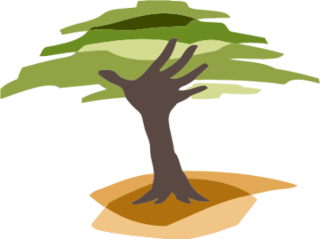
Eden: People+Planet is a nonprofit NGO that works in developing countries to rebuild natural landscapes destroyed by deforestation. Eden works directly with communities experiencing extreme poverty resulting from the deforestation and destruction of the land that sustains them. The organization employs thousands of local community members and provides them with the education and tools necessary to plant, grow, and protect to maturity, millions of trees each year. Eden currently plants approximately 15 million trees a month, and in 2020 reached over 423 million trees planted of which over 225 million are mangrove trees.
Pod Volunteer is a non-governmental volunteering organisation with an associated registered charity based in the United Kingdom.

Tsitongambarika is a 58,597 ha protected area of lowland forest in the Anosy region of southeast of Madagascar, to the north of Fort-Dauphin. The area supports rare species of amphibians, birds, lemurs and reptiles, many of which are endemic. In 2001, the site was designated as an Important Bird Area by BirdLife International, and in 2015 an area of 58,957 ha received protection by the government under Decree No. 2015-720 of 21 April 2015.
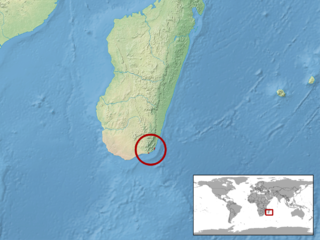
Phelsuma antanosy is a species of day gecko, endemic to the coastal Anosy Region in Madagascar. The species was first discovered in by scientist Raxworthy & Nussbaum in the year 1993. Phelsuma antanosy more commonly known as Antanosy day gecko is one of 45 different species represented in the Phelsuma genus. This specific species of gecko has been placed on the critically endangered list by the IUCN red list since January 28, 2011. Little is known about the Antanosy day gecko because of its recent discovery and the small amount of research done on the species. Although, information about the geographical fragmentation and population location lead to the decision to put the gecko on the critically endangered list.
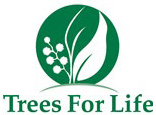
Trees For Life is a registered charity that protects and restores land in the bush, farms, and urban areas of South Australia. It runs many programs, the oldest involving volunteers growing seeds into small plants for planting by farmers and other landholders. It was formed in 1981 and now has 2000 volunteers.
Analavelona, also known as Analavelona Massif, is a mountain in southwestern Madagascar. The massif is home to an enclave of montane subhumid forest, which is considered a sacred forest by the local people and notable for its biodiversity.











